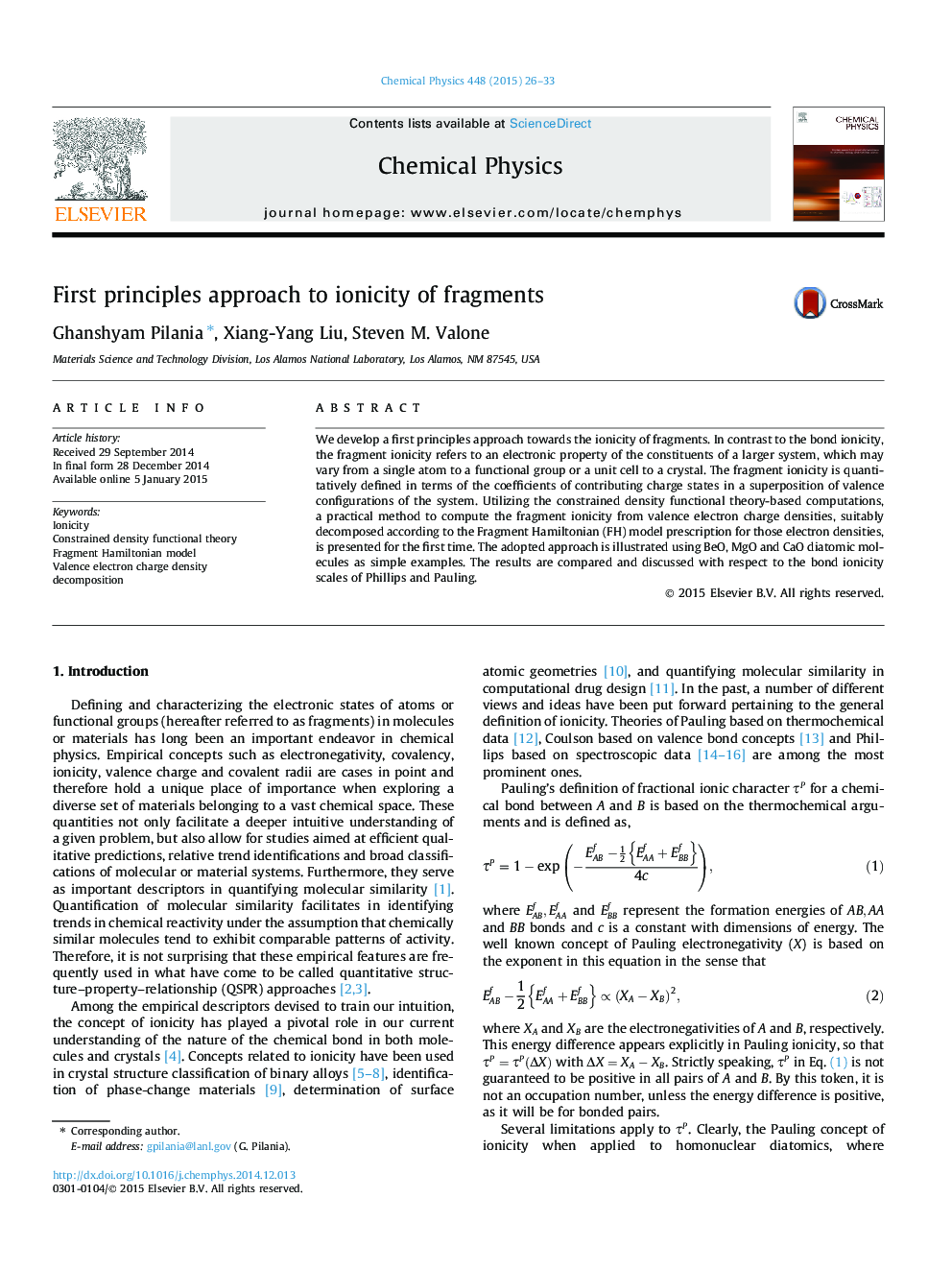| کد مقاله | کد نشریه | سال انتشار | مقاله انگلیسی | نسخه تمام متن |
|---|---|---|---|---|
| 5373372 | 1504216 | 2015 | 8 صفحه PDF | دانلود رایگان |

• A novel first principles approach towards the fragment ionicity.
• Constrained DFT and valance charge density decomposition were employed.
• Correct dissociation limit achieved for diatomics.
• Ionicity is an input parameter for a new class of atomistic potentials.
We develop a first principles approach towards the ionicity of fragments. In contrast to the bond ionicity, the fragment ionicity refers to an electronic property of the constituents of a larger system, which may vary from a single atom to a functional group or a unit cell to a crystal. The fragment ionicity is quantitatively defined in terms of the coefficients of contributing charge states in a superposition of valence configurations of the system. Utilizing the constrained density functional theory-based computations, a practical method to compute the fragment ionicity from valence electron charge densities, suitably decomposed according to the Fragment Hamiltonian (FH) model prescription for those electron densities, is presented for the first time. The adopted approach is illustrated using BeO, MgO and CaO diatomic molecules as simple examples. The results are compared and discussed with respect to the bond ionicity scales of Phillips and Pauling.
Figure optionsDownload as PowerPoint slide
Journal: Chemical Physics - Volume 448, 20 February 2015, Pages 26–33